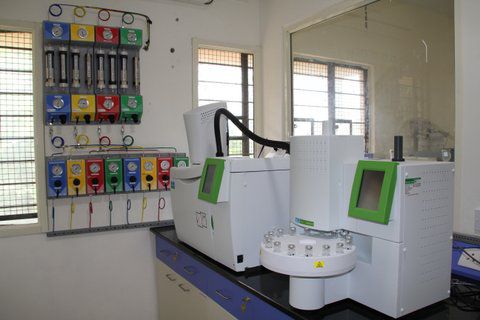Gas Chromatography principle is based on Partition based separation of components. This chromatography consists of two kinds like gas liquid chromatography GLC and gas solid chromatography. Of them GLC is widely used and so our entire conversation would be associated with that. The Principle in gas chromatography involves separation of volatile areas of the sample based on their partition co-efficient. This is ratio of solubility of substance between gaseous mobile phase and stationary liquid phase. The areas of the sample that are partitioned into gas come out first while some come afterwards. Gas Chromatography runs on the principle of partition chromatography for separation of components. The stationary phase is a liquid coating encouraged over a predetermined interval while the mobile phase is an inert and stable gas. Therefore, the name as Gas-Liquid chromatography.

This Kind of gas chromatography was primarily designed to evaluate volatile substances like fatty acids, essential oils, etc. The System is quite costly, cumbersome and has delicate instrumentation. The tools maintenance, and operating costs are very high. But Still, gas chromatography is an important tool in analytical chemistry, especially in the medicinal field. The gas is set to flow at a constant rate from the cylinder on to the liquid coating impregnated on a solid support in a column. The sample is injected into the injection point and may be transported by the mobile gas to the pillar. Within the column, the components become separated from the differential partition between the mobile phase petrol and stationary phase liquid. The component that partitioned into gasoline comes in the column and can be detected by the detector. The one partitioned into liquid stage comes out later and can also be detected. The records are displayed on a computer application. From these peaks, an individual can establish the components and their concentration.
High performance liquid chromatography Has a wider array of applications than traditional gas chromatography. For the analysis of explosives Especially, gas chromatography is better suited because, the mixture or compound isn’t needed to be converted into a gas phase. You can envision the need to convert into a gas phase would be inconvenient to say the least for the testing of volatile chemicals! There is a particular kind of HPLC that is frequently used in forensic labs. It is referred to as reversed phase HPLC. This type is used on a daily basis in labs around the world for the analysis of agents used in drug dilution such as sugars and flour, in the analysis of explosives and bomb making materials, in medical toxicology, and in the analysis of drug use.